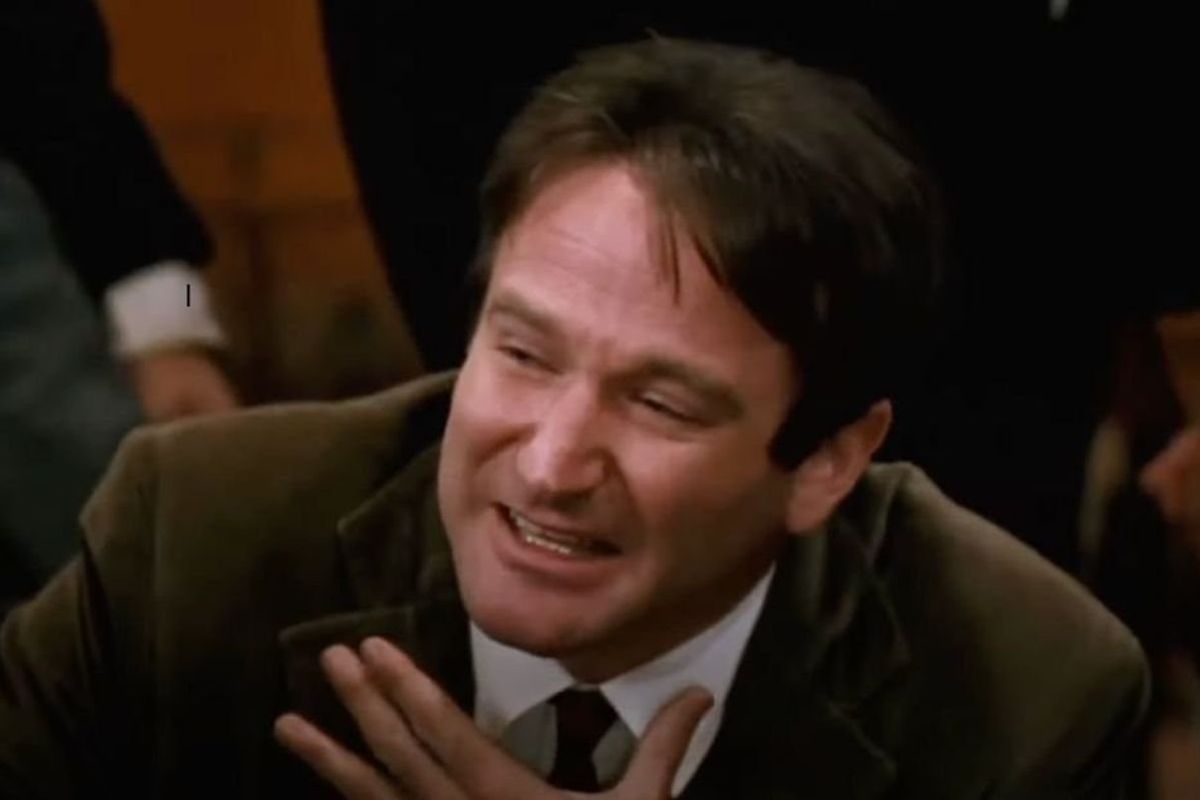LGBTQ vets are suing the Department of Defense to overturn their dishonorable discharges
“When I was in the military, they gave me a medal for killing two men and a discharge for loving one.”

Five LGBTQ vets are suing the Department of Defense.
It’s been 12 years since the U.S. military overturned its "don’t ask, don’t tell" policy and allowed openly gay LGBTQ people to serve. But even though the discriminatory policy was overturned, tens of thousands of those dishonorably discharged between 1994 and 2011 still have to live with the scarlet letter of the designation.
Veterans who were thrown out of the military after their sexuality was discovered have to relive the trauma every time they present their DD-214 paperwork when accessing VA benefits or applying for jobs, homes or loans.
Further, dishonorable discharges often ban veterans from receiving essential benefits such as education, unemployment, healthcare, and housing benefits through the U.S. Department of Veterans Affairs.
But all of that may soon change if a civil rights lawsuit filed by five veterans against the Department of Defense is successful. The lawsuit claims that the DOD should overturn the dishonorable discharges and update discriminatory language on their discharge papers referencing their “real or perceived” sexuality.
“Thousands of veterans discharged for their actual or perceived sexual orientation often received a less than Honorable discharge or had their discharge flagged with separation codes publicly associated with ‘homosexuality,’ denying them benefits they rightfully earned based on their service,” the lawsuit states.
The lawsuit addresses the emotional damage caused by the discriminatory laws by referencing a quote on the tombstone of Vietnam veteran Leonard Matlovich: “When I was in the military, they gave me a medal for killing two men and a discharge for loving one.”
Although there is a process for altering dishonorable discharges, the lawsuit argues that it should be the job of the DOD to facilitate such changes instead of putting the burden on the victims of the discriminatory policy. It’s a lengthy bureaucratic process requiring some veterans to hire lawyers.

The grave of Leonard Matlovich
via Ryanhgwu/Wikimedia Commons
"Requiring LGBTQ+ veterans to first bear the stigma and discriminatory effects of carrying indicators of sexual orientation on their [discharge papers] and then navigate a broken record correction process to seek resolution violates their constitutional rights to equal protection, informational privacy, property, and due process protected by the Fourteenth and Fifth Amendments to the U.S. Constitution," the suit says.
The lawsuit does not aim for monetary compensation. Instead, it urges the DOD to proactively update the discharge documents for these veterans by eliminating any mention of sexual orientation instead of requiring the individual veteran to initiate the process.
This ruling could have a tremendous effect on the lives of thousands of veterans. It’s estimated that if the lawsuit succeeds, it could affect at least 35,000 service members discharged because of “real or perceived” homosexuality, homosexual conduct, or “sexual perversion.”
Although nothing can be done to completely repair the damage to the thousands of veterans who lost their military careers because of their “real or perceived” sexuality, let’s hope the DOD does its part to help right the wrongs committed in the three decades that LGBTQ+ people were discriminated against in the U.S. military.



 A woman reading a book.via
A woman reading a book.via A woman tending to her garden.via
A woman tending to her garden.via
 A person on Threads makes a typo.Photo credit: Threads/@maureenmzobe
A person on Threads makes a typo.Photo credit: Threads/@maureenmzobe
 Individual impact isn't as inspiring to Gen Z as it was to
Individual impact isn't as inspiring to Gen Z as it was to  Gen Z is much more black and white about behaviors than previous generations.
Gen Z is much more black and white about behaviors than previous generations. 

 Young man holds up his hand to show five.
Young man holds up his hand to show five. Two women having a conversation at a coffee shop.
Two women having a conversation at a coffee shop.  Two women talking as the leave a yoga class
Two women talking as the leave a yoga class